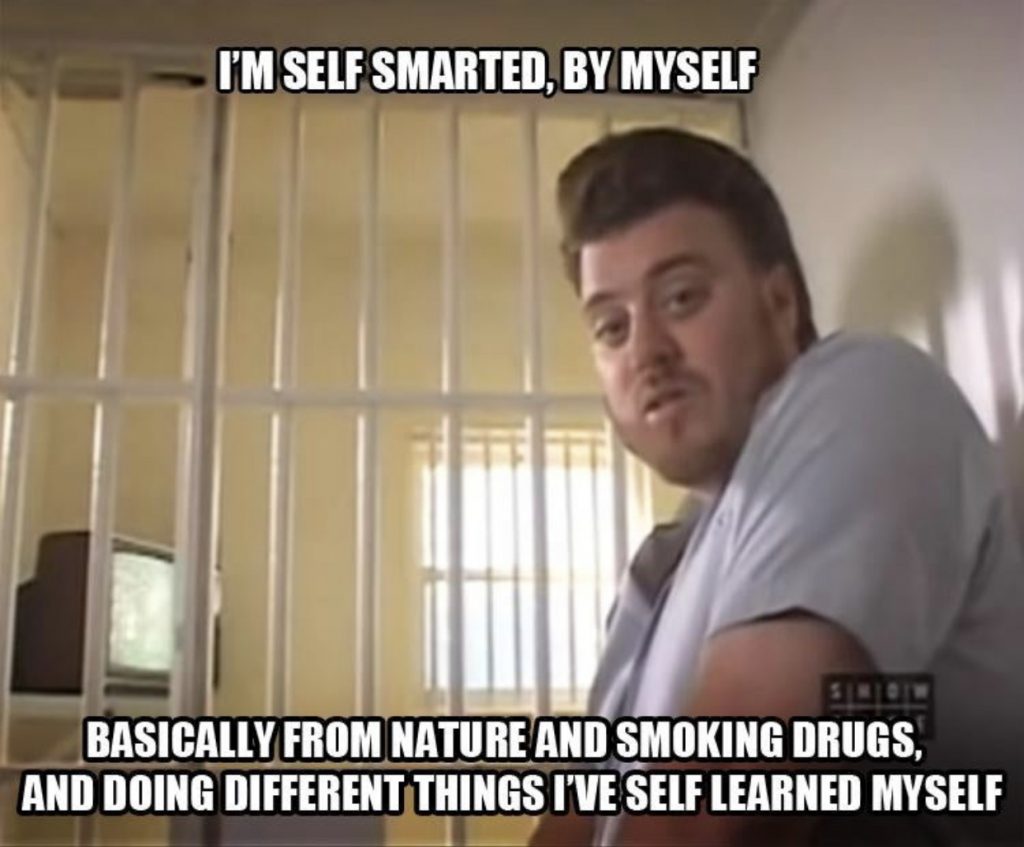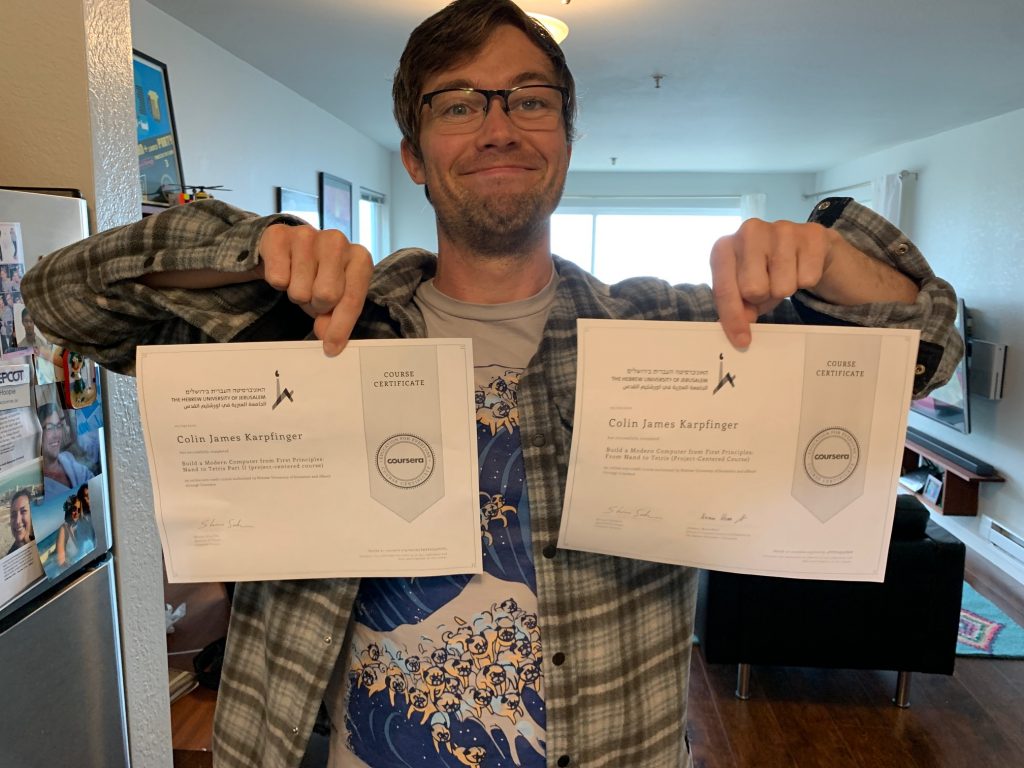On April 1, 2020 I left the company I founded 11 years earlier, and started on what I thought would be a 3 month experiment of self-education. Nine months later, I’ve found my next “career” and I couldn’t be happier with the result. I’m here to share what I learned in hopes it will be helpful to someone else in a similar situation.
Why?
I missed the creativity and curiosity involved with building something new. When I started Punch Through, it bothered me to see engineers limit themselves by not being exposed to the business side of things. So part of my experience was learning about starting, growing, managing companies and how that all works.
At a certain point, however, my job became 90% calls and meetings, which just isn’t my thing. It took me some time to accept this about myself; All the meditation, yoga, surfing I can do doesn’t change the fact that I need a long time to recharge after socializing.
I wanted to find a new direction that complemented my strengths and didn’t put me in a position to end every day feeling exhausted and anxious.

Format
Over the last year I’ve wished there was a prescriptive process to this. I still wonder why there isn’t, given the wealth of free knowledge on the internet.
Rather than explain only my experience, I’m trying to describe a general process that I think could help others that were in my shoes. The rest of this article is how I would define the process, mixed with parts of my experience.
Identify Your Core Values + Activities
- What are your core values?
- This can feel really hokey and dumb, like you’re trying to boil your personality down to a few words. But it actually helped me.
- Mine are Authenticity, Curiosity, Love, Creativity.
- What types of activities / directions are interesting that fulfill these values?
- This is just a brainstorm at this point. It helps to see some possible areas you might go in. Don’t worry if they feel weird, impossible, or unlikely at this point.
- This was a little uncomfortable for me- but let it be uncomfortable. I had reasons in my head why most of my list wasn’t possible or wasn’t perfect, but it’s important to still write it down.
- This is just a brainstorm at this point. It helps to see some possible areas you might go in. Don’t worry if they feel weird, impossible, or unlikely at this point.
- Personally, I wouldn’t publicize this list. It should be free from scrutiny from anyone- including yourself. Figuring out which ideas or activities are actually possible can come later.
I had video game development listed in one of my notes from a year before my sabbatical. It didn’t feel right at the time, but it’s what I ended up doing. So don’t judge this list too much–just write it down, even if something in your head is saying “that’s not possible!”.
Plan Your Sabbatical
- Brainstorm a list of possible goals
- These should all be “SMART” goals: specific, measurable, assignable, realistic, time-limited.
- Really treat this like a brainstorm- just throw down anything you think of. Refine it later.
- Brainstorm a list of projects and classes
- Make a budget
- This helped me get over the fact that I wasn’t making a salary for 3 months. Obviously this isn’t possible for everyone, but I would bet it’s more possible than people think.
- Compare your budget to the alternatives: For example, grad school. This helped me accept that a sabbatical is okay. During grad school you typically pay a ton of money and forgo your main career for 2-4 years, the cost of which is most likely more than your sabbatical.
- Accountability
- Choose someone who you will check in with every week or 2 weeks to report your progress. This adds a bit of social pressure to accomplish things, and to pick realistic goals.
- Pick the right person for this. Not your partner, not your coworkers. I tried to pick someone who I didn’t have much of a personal or professional relationship with.
- If it’s not working, have the person help you “debug the process”. If you’re not being productive, change the process, not yourself. This was important to me to avoid feeling guilty, which tends to kill all enjoyment and productivity.
- Choose someone who you will check in with every week or 2 weeks to report your progress. This adds a bit of social pressure to accomplish things, and to pick realistic goals.
- Day to day
- Give yourself a clear end time to every “working” day. Mine was 5pm. Everyday, even if things were really challenging, I knew at 5pm I could call it quits and celebrate that I made it through the day.
- I started to love the feeling of saving my work, closing all the tabs and programs, and playing video games to unwind. I may have started a habit of freezing a beer stein and pouring myself a cold beer at 5pm when my brain was mush.
- Take the weekends off. Give yourself a break. I think this is really important to not let your focused time creep into the rest of your life, which will kill your productivity.
- Giving yourself clear limits lets you feel free to relax when you’re done. This is so important.
- Give yourself a clear end time to every “working” day. Mine was 5pm. Everyday, even if things were really challenging, I knew at 5pm I could call it quits and celebrate that I made it through the day.
Tracking Your Progress
- I used google documents and spreadsheets to track my progress and help keep me reminded of my goals.
- Sabbatical Schedule + Goal Tracking – This is a google sheet to track your goals by the week. (click File -> Make a Copy)
- Weekly Plan – I filled this out every Monday. (click File -> Make a Copy)
- It has these sections
- A recap of my goals
- Do these still seem like what I want to be doing?
- How’s it going so far, generally?
- How am I tracking towards my goals?
- How am I feeling about last week?
- How am I feeling about this week?
- It has these sections
My Experience
I felt pretty unsure at the start of my sabbatical, as I’m sure is normal. It’s a period of uncertainty. These are usually the moments when I make the most personal growth, so it helped to lean into that uncertainty. Adding to this was the whole Covid-19 pandemic. Despite the added fear, I figured if I had to be at home all day,

The first thing I did was take an online course on Coursera (the wonderful Nand to Tetris). The structure and clear progress was very reassuring to me, and generally built my confidence in this new path. It brought me back to engineering concepts I hadn’t seen since college, and generally gave me the feeling of “I can do this”.

Out of the 10 goals I set for myself, I completed or exceeded 5 of them, partially accomplished 2, and failed at 3. Goals change over time- it’s okay to decide if some of them aren’t relevant anymore. That explains one of my failures. The other 2 were lack of time or focus, that I probably could have fixed if I changed my process. The ones I did complete were really huge for me, however.
One of the areas of exploration was video game development. I had started to explore Unity on weekends before my sabbatical and was almost surprised at how much it drew me in. I started programming for fun again, and found myself at night having to pull myself away to go to sleep.
I had avoided game dev as a career path because of some stigma I felt towards video games. I wrote it down as a potential direction for my sabbatical early on, but usually wrote it off because of the social implications; something didn’t feel right. Eventually this started to wear off. I’d like to say it was because video games are a growing market, because giving an economic reason always feels more serious, but in reality that’s not why.
Video games are just so damn interesting. In each game you’re building a new world, and sharing that world with thousands (or millions) of people. You’re designing how they interact with it, how they’re rewarded, punished. How the game makes them feel. For someone who loves building things, it’s heaven.
So after a few months, this was my new direction. I spent the last 3 months of 2020 building prototypes of games, and now I’m spending 2021 building my first game.
In Retrospect
The more I learned, the more my confidence grew in my ability to learn. I underestimated the power of this. This was one of the biggest results, even more than the actual content I learned. As you tackle things that you previously felt were difficult, the next difficult thing stops looking so impossible.
Having a singular focus is powerful. This gives you the ability to dive in more deeply and explore anything you’re curious about. This is something you don’t get in higher education very often.
What I Would Change
I would’ve shared my direction and plan earlier, but not too early. It was important for me to feel like I was doing this as my own thing, and I think I benefited by not talking about it publicly until after I did it. It was helpful to share it with friends and family, and perhaps I would’ve done that more.
That being said, I wouldn’t have changed much more. There were things I could do better, but overall it was one of the best experiences of my life, and the fact that it happened during Covid, that’s really saying something.